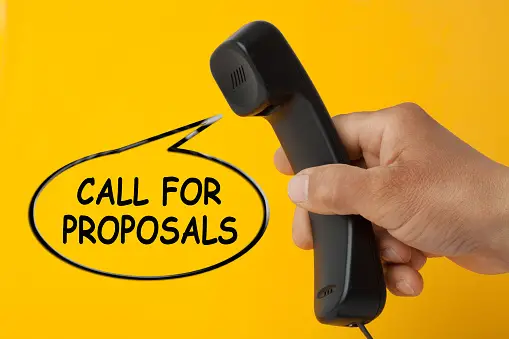Building strong relationships with government agencies is an important aspect of grant proposal writing, and can help ensure the success of your funding applications.
In this article, we’ll explore the benefits of developing these relationships, and provide some tips on how to do so effectively.
One of the key advantages of building strong relationships with government agencies is the ability to stay informed about upcoming grant opportunities. By establishing connections with key individuals within these agencies, you can learn about funding programs before they are announced publicly, and gain insights into the types of projects that are most likely to be funded.
In addition to accessing new funding opportunities, building relationships with government agencies can also help you better understand the priorities and goals of the agencies themselves. By engaging in conversations with agency representatives, you can gain insights into the challenges and opportunities that these organizations are facing, and tailor your proposals accordingly.
Another benefit of building strong relationships with government agencies is the ability to access technical assistance and other resources. Many agencies offer support and guidance to grant applicants, including workshops, training sessions, and other resources designed to help organizations succeed in their grant applications.
So how can you go about building strong relationships with government agencies? Here are a few tips:
- Start by identifying the agencies that are most relevant to your work. Look for agencies that fund projects similar to yours, or that have a mission that aligns with your own.
- Attend relevant conferences, workshops, and other events where you can meet agency representatives and learn more about their priorities and goals.
- Reach out to agency representatives directly to introduce yourself and your organization. Explain the work that you do, and express your interest in collaborating on future projects.
- Take advantage of technical assistance and other resources offered by government agencies, and use these opportunities to build relationships with agency staff.
- Follow up regularly with agency representatives to stay informed about upcoming grant opportunities, and to maintain ongoing communication.
Example 1
Let’s say you are the executive director of a nonprofit organization that works to improve access to healthcare in rural areas. You want to apply for a federal grant to support your organization’s work, but you’re not sure where to start.
The first step is to identify the government agencies that are most relevant to your work. In this case, the Department of Health and Human Services and the Health Resources and Services Administration are two agencies that fund healthcare-related projects.
Next, you should attend conferences and workshops where you can meet agency representatives and learn more about their priorities and goals. For example, you might attend a healthcare conference that features speakers from these agencies, or a workshop on grant proposal writing that is sponsored by the agencies.
Once you’ve made contact with agency representatives, you can introduce yourself and your organization. Explain the work that you do, and express your interest in collaborating on future projects. You might also ask for feedback on your proposal, or request technical assistance in preparing your application.
As you continue to work on your proposal, you should stay in touch with agency representatives and follow up regularly. This will help you stay informed about upcoming grant opportunities, and allow you to build relationships with agency staff that could be valuable in future applications.
Ultimately, by building strong relationships with government agencies, you can increase your chances of securing funding for your organization’s important work.
Example 2
Another practical example of the importance of building strong relationships with government agencies is if you are a small business owner seeking to secure government contracts.
To start, it’s important to research the federal agencies that have a need for the products or services your business offers. The General Services Administration’s System for Award Management (SAM) is a good resource for finding government contract opportunities.
Once you have identified agencies that are a good fit for your business, it’s important to reach out to their procurement officers and introduce yourself and your business. This can be done through email or by attending agency events, such as industry days or vendor outreach sessions.
During these interactions, it’s important to emphasize the unique value that your business can provide to the agency, and to learn about the agency’s needs and priorities. This can help you tailor your proposals and offerings to better meet their needs and increase your chances of winning contracts.
Additionally, staying in touch with procurement officers and keeping them updated on your business’s capabilities and successes can help to build trust and credibility over time. This can lead to repeat business and even referrals to other government agencies.
In summary, by building strong relationships with government agencies, small business owners can increase their chances of winning contracts and grow their businesses. Regular communication, attention to agency needs and priorities, and follow-up after contract awards are all key components of building strong relationships with government agencies.
In conclusion, building strong relationships with government agencies is a critical component of successful grant proposal writing. By accessing new funding opportunities, gaining insights into agency priorities and goals, and accessing technical assistance and other resources, you can increase your chances of securing funding and achieving your organizational goals. By following the tips outlined above, you can establish yourself as a valuable partner to government agencies and increase your chances of success in grant proposal writing.
Recommended Books for Enhancing Grant Writing Skills
To further enhance your grant writing skills and stay on top of these trends, consider diving into some insightful literature.
Here are a few recommended books:
- The Ultimate Guide to Federal Grant Applications: Techniques for Success – This book is a must-read for anyone looking to navigate the complex world of federal grant applications. It offers practical techniques, insider tips, and a comprehensive understanding of what it takes to create successful federal grant applications.
- Advanced Grant Writing for Nonprofits : Focuses on sophisticated techniques for experienced grant writers. It delves into complex aspects of proposal development, offering strategies for dealing with competitive grant environments and large funding bodies.
- Mastering Grant Writing: A Nonprofit’s Guide to Effective Proposal Development and Submission: This book serves as a comprehensive guide, covering the entire process of grant writing. It includes tips on understanding funders’ perspectives, crafting compelling narratives, and the nuances of proposal submission.
- Becoming the Grant Guru: Freelancer’s Guide to Success : Tailored for freelance grant writers, this book provides insights into building a successful career in grant writing. It includes strategies for finding clients, managing projects, and maximizing the impact of grant proposals.
- The Small Business’s Guide to Winning Grants : This resource is particularly useful for small businesses looking to secure grants. It offers practical advice on identifying suitable grant opportunities, understanding the requirements of small business grants, and crafting winning proposals.
- Grant Readiness Guide: Preparing to Triumph in Funding Opportunities : A comprehensive resource for organizations at various stages of grant preparedness. It provides a roadmap for developing organizational capacity, aligning projects with funders’ goals, and creating compelling applications.
- Her Capital: Unlocking Women’s Small Business Grants: Specifically designed for women entrepreneurs, this book offers guidance on navigating the landscape of small business grants for women. It includes insights into grant sources, application strategies, and tips for leveraging grants to grow a business.
Unlock Your Grant Success!
Join our email list now for exclusive grant-writing tips and unique grant opportunities delivered straight to your inbox. Click here to Subscribe. Don’t miss out!




